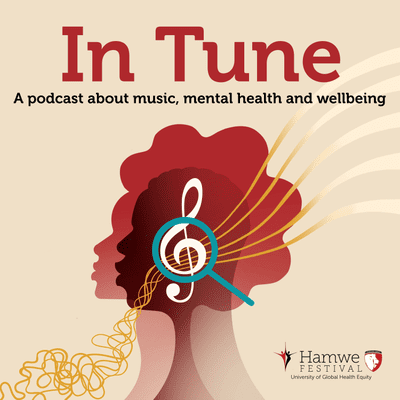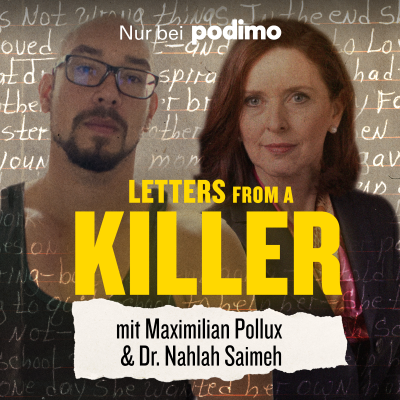
In Tune
Englisch
Kostenlos bei Podimo
Kostenlos hören bei Podimo
Starte jetzt und verbinde dich mit deinen Lieblingspodcaster*innen
- Vertraut von über 1 Mio. deutschen Hörer*innen
- Über 1.000 lokale Podcasts und Shows – nur bei Podimo
- Keine Zahlung nötig
Mehr In Tune
Through the lens of diverse global health practitioners, mental health specialists, music therapists, and artists, 'In Tune' explores the role of music in mental health and wellbeing. This six-episode series unpacks what music means in different contexts, deep dives into current practices and new innovations in music therapy, and music as a tool for healing, both in the African context and beyond. In Tune is hosted by Hamwe Festival, a pioneering arts in health initiative with a bold mission to strengthen collaboration between the creative and health sectors. Hamwe Festival is an initiative of the University of Global Health Equity (UGHE), a global health sciences institution in Rwanda radically changing the way health care is delivered around the world by reimagining health education.
Alle Folgen
6 FolgenMusic and Self
The beliefs and evaluations people hold about who they are can influence their mental health and wellbeing. Music is a tool that can support identity construction at a young age, enhancing one's sense of accomplishment, agency, and self-esteem. Throughout life, and particularly in old age, music can enable the retrieval of memories which support one’s self-concept. This episode explores how engaging in musical activities can support self-concept and positive self-regard.
Managing Pain and Trauma with Music
Chronic pain compromises mental health and wellbeing. Individuals with chronic pain are at higher risk of disorders including anxiety, depression, and PTSD. Chronic pain can co-occur with psychological trauma, further compromising mental health. Music is shown to ease anxiety and depression among patients with chronic pain and or trauma, acting as a tool for diversion and self-expression. This episode highlights the role of music therapy in managing physical and psychological pain.
Can Music Ease Symptoms of Depression and Anxiety?
Depression and anxiety are two of the most prevalent mental disorders. These two conditions often occur simultaneously, manifesting through symptoms such as depressed mood, loss of interest and enjoyment, fatigue, disturbed sleep, difficulty concentrating, and restlessness. Music therapy has been shown to improve mood, inhibit fatigue, and ease various symptoms of depression and anxiety. This episode looks at the role of music in easing symptoms of depression and anxiety.
Music for Coping
The ability to cope with stressors is integral to mental health. Managing stressors consists of problem-focused coping, i.e. acting on the problem, and emotion-focused coping i.e. regulating one’s emotional response to the problem. Music can relax and support emotional regulation for individuals facing stressors such as preoperative anxiety and terminal illness. This episode explores the role of music in coping with stress.
Music, Social Inclusion, and Community Engagement
Music is shown to support social bonding and community engagement, both factors influencing mental health. Group participation in musical events can improve oxytocin levels, promote cooperation, and foster a sense of belonging. The social bonding effect of music is particularly relevant for individuals who, for various reasons, are unable to fully participate in economic, social, political, and cultural life. This episode looks at how music can promote social inclusion and community engagement.















































